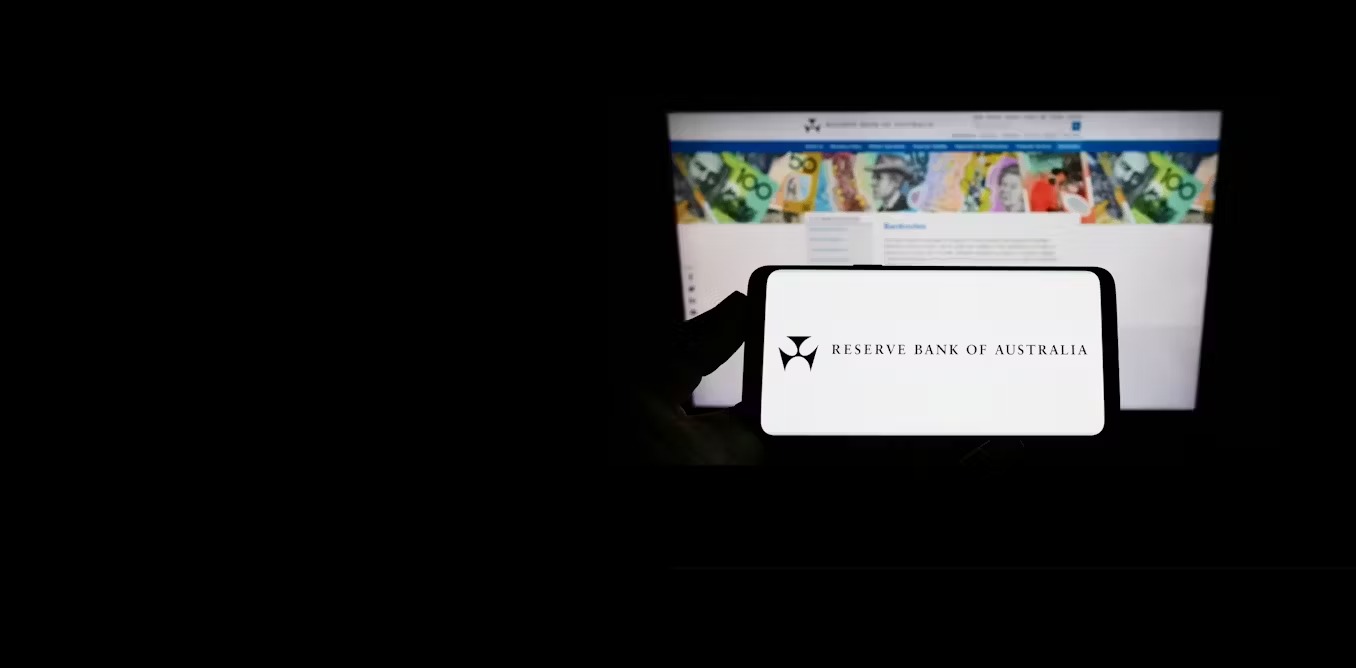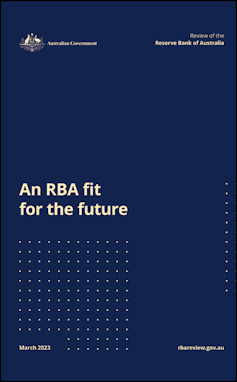Pay close enough attention to parliament these next few days, and you’re likely to witness something truly remarkable: politicians from both sides of politics uniting to remove the power of politicians to overrule the Reserve Bank.
As an instance of self-loathing, it’s hard to top.
Sure, a good many of us don’t trust politicians. But surely politicians ought to trust politicians. Surely politicians ought to realise that we put them there to make decisions – not usually the day-to-day decisions, but the ultimate big decisions. They are meant to be where the buck stops.
That Treasurer Jim Chalmers could be even thinking about axing his ultimate power to veto decisions of the Reserve Bank board shows just how far the myth of an “independent Reserve Bank” has spread.
Scroll through the treasurer’s website, and you’ll find 195 documents referring to the “independent Reserve Bank”, many multiple times.
‘Independent’, but not according to the law
Saying the Reserve Bank is independent suits the treasurer and it suits the prime minister, just as it has suited many of their predecessors. As soon as the bank does something that’s necessary but unpopular (such as pushing up interest rates) they are able to say – wrongly – there’s nothing they can do.
The government’s Reserve Bank is dependent on the government in myriad ways.
The government set up the Reserve Bank. The government appoints every member of its board. The government directly appoints its chief and deputy chief. And from time to time the government gives it running instructions.
But – most importantly – the government can overrule it.
The mechanism is built into the Reserve Bank Act.
In the event of a disagreement, the treasurer can
submit a recommendation to the governor-general, and the governor-general, acting with the advice of the Federal Executive Council, may, by order, determine the policy to be adopted by the bank.
The government is to accept responsibility for the decision taken, and the Reserve Bank board must
thereupon ensure that effect is given to the policy determined by the order and shall, if the order so requires, continue to ensure that effect is given to that policy while the order remains in operation.
After so directing the bank, the treasurer is to table in parliament a copy of the direction, along with a statement explaining the reasons, and a statement from the Reserve Bank board putting the case that failed to convince the treasurer.
These are the clauses – until now unused – that in April the outside review of the Reserve Bank asked the government to do away with.
Its thinking was that the government can’t be trusted.
As the review put it
if an elected government controls monetary policy there are risks that it may try to push the economy to run above its capacity, resulting in higher inflation but with no lasting impact on employment.
On releasing the review’s recommendations, Treasurer Jim Chalmers said straight away that he agreed in principle with all of them.
Shadow Treasury Angus Taylor said much the same thing, although he now says the Coalition will wait until sees the legislation Chalmers is about to introduce before deciding its position on it.
The veto power is there for a reason
On the face of it, a reasonable position would be that the government’s ability to overrule the bank in extreme circumstances has caused no problem so far.
The review counters this by warning of “the possibility that established conventions cease to be observed”.
But, if that did happen, it would be because there was a serious (and ultimately public) rift between the elected government and an unelected board.
With the exception of judges in Australia’s courts, unelected officials can’t normally overrule elected governments. It’s how our system is designed.
The Reserve Bank tried to overrule the government once, and succeeded, which is why the provision we have was written into the law.
Back in 1930, in the early years of the Great Depression, the Reserve Bank was part of the Commonwealth-owned Commonwealth Bank, run by a board appointed by the government which reported to the government.
In The Conversation earlier this year, Alex Millmow outlined what happened.
Desperate to support the economy, the government begged the government-owned bank to help it finance public works.
The bank refused. Its government-appointed chairman, Sir Robert Gibson, wrote to Treasurer Ted Theodore warning a point was being reached
beyond which it would be impossible for the Commonwealth Bank to provide further financial assistance for the governments in the future
Theodore replied complaining the bank was trying to
arrogate to itself a supremacy over the government in the determination of the financial policy of the Commonwealth, a supremacy which, I am sure, was never contemplated by the framers of the Australian Constitution
While the government did not question the right of the bank’s board to offer such comment or criticism as the board thought proper, the control of the public purse had “heretofore always been regarded as an essential prerogative of the people”.
In the end, it was the government that backed down. But to ensure it could never be overruled again, Labor wrote the veto power into the Commonwealth Bank Act of 1945 and the Coalition wrote it into the Reserve Bank Act of 1959.
That’s the veto power today’s Labor Party, quite possibly with the support of the Coalition, is about to try to remove.
I understand why the Reserve Bank review made the recommendation it did: it wants monetary policy to work well. But I don’t think that’s enough of a reason for the government to attempt to abrogate its responsibility.
And ultimately, it can’t. The Australian public is going to hold the government responsible for the state of the economy even if it succeeds in tying one hand behind its back. But I don’t think it’s wise. One day it might need it.



 Fed Governor Lisa Cook Warns Inflation Risks Remain as Rates Stay Steady
Fed Governor Lisa Cook Warns Inflation Risks Remain as Rates Stay Steady  Dollar Near Two-Week High as Stock Rout, AI Concerns and Global Events Drive Market Volatility
Dollar Near Two-Week High as Stock Rout, AI Concerns and Global Events Drive Market Volatility  Silver Prices Plunge in Asian Trade as Dollar Strength Triggers Fresh Precious Metals Sell-Off
Silver Prices Plunge in Asian Trade as Dollar Strength Triggers Fresh Precious Metals Sell-Off  Japanese Pharmaceutical Stocks Slide as TrumpRx.gov Launch Sparks Market Concerns
Japanese Pharmaceutical Stocks Slide as TrumpRx.gov Launch Sparks Market Concerns  RBI Holds Repo Rate at 5.25% as India’s Growth Outlook Strengthens After U.S. Trade Deal
RBI Holds Repo Rate at 5.25% as India’s Growth Outlook Strengthens After U.S. Trade Deal  Asian Stocks Slip as Tech Rout Deepens, Japan Steadies Ahead of Election
Asian Stocks Slip as Tech Rout Deepens, Japan Steadies Ahead of Election  Trump Signs Executive Order Threatening 25% Tariffs on Countries Trading With Iran
Trump Signs Executive Order Threatening 25% Tariffs on Countries Trading With Iran  South Africa Eyes ECB Repo Lines as Inflation Eases and Rate Cuts Loom
South Africa Eyes ECB Repo Lines as Inflation Eases and Rate Cuts Loom  FxWirePro- Major Crypto levels and bias summary
FxWirePro- Major Crypto levels and bias summary 


































